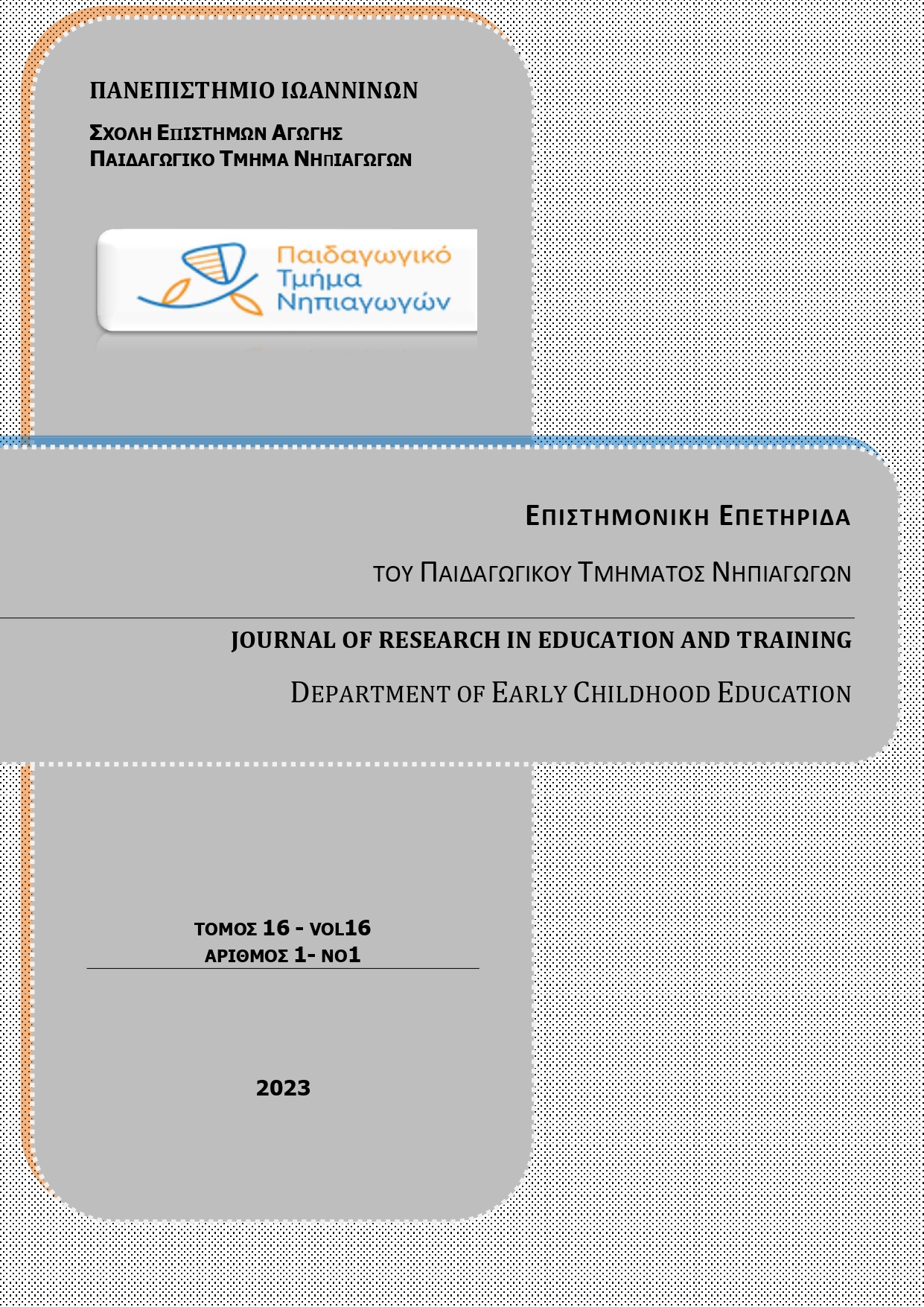Διαφοροποιημένη διδασκαλία και μάθηση συνδέοντας την έρευνα με τη διδακτική πράξη

Περίληψη
Η διαφοροποίηση της διδασκαλίας και της μάθησης θεωρείται βασική διάσταση της αποτελεσματικής διδασκαλίας. Πρόκειται για μια διδακτική προσέγγιση που ανταποκρίνεται στις ανάγκες, τα ενδιαφέροντα και τις δεξιότητες των μαθητών μέσω του σχεδιασμού και της εφαρμογής πολλαπλών και ποιοτικά διαφορετικών περιβαλλόντων μάθησης. Σε αντίθεση με τη συνηθισμένη διδακτική πρακτική της μεταφοράς και της μεταβίβασης γνώσεων σε ομοιογενείς τάξεις, στη διαφοροποιημένη διδασκαλία δίνεται έμφαση στην υιοθέτηση εναλλακτικών διδακτικών προσεγγίσεων που απευθύνονται σε ανομοιογενείς τάξεις, δημιουργώντας ένα θετικό μαθησιακό περιβάλλον για την ενεργό συμμετοχή των μαθητών. Η καλλιέργεια μαθησιακών κινήτρων, η ενθάρρυνση της ουσιαστικής δέσμευσης στη μαθησιακή διαδικασία, η προώθηση της αυτόνομης δράσης και η αύξηση της αλληλεπίδρασης μεταξύ των μαθητών αποτελούν βασικά χαρακτηριστικά της διαφοροποιημένης διδασκαλίας, τα οποία, στην παρούσα εργασία ενισχύονται με την υιοθέτηση των αρχών της κοινωνικοπολιτισμικής θεωρίας του Vygotsky και της υποστηρικτικής διδασκαλίας (scaffolding). Σκοπός της παρούσας εργασίας είναι η ανάδειξη της σημασίας της διαφοροποιημένης διδασκαλίας και μάθησης, η αναφορά στις προϋποθέσεις για την εξασφάλιση τους, η έμφαση στη διδακτική πορεία του διαφοροποιημένου σχεδιασμού, καθώς και η παρουσίαση μιας σειράς εκπαιδευτικών πρακτικών, από τις οποίες οι εκπαιδευτικοί μπορούν να επιλέξουν, προκειμένου να ανταποκριθούν στις διαφορετικές απαιτήσεις του μαθητικού πληθυσμού της σχολικής τάξης.
Λεπτομέρειες άρθρου
- Πώς να δημιουργήσετε Αναφορές
-
Μάρκογλου Α. (2023). Διαφοροποιημένη διδασκαλία και μάθηση: συνδέοντας την έρευνα με τη διδακτική πράξη. Επιστημονική Επετηρίδα Παιδαγωγικού Τμήματος Νηπιαγωγών Πανεπιστημίου Ιωαννίνων, 16(1), 1–34. https://doi.org/10.12681/jret.30652
- Τεύχος
- Τόμ. 16 Αρ. 1 (2023):
- Ενότητα
- Άρθρα

Αυτή η εργασία είναι αδειοδοτημένη υπό το CC Αναφορά Δημιουργού – Μη Εμπορική Χρήση – Παρόμοια Διανομή 4.0.
Οι συγγραφείς που δημοσιεύουν σε αυτό το περιοδικό συμφωνούν στους παρακάτω όρους :
1. Οι συγγραφείς διατηρούν τα δικαιώματα πνευματικής ιδιοκτησίας επί των άρθρων τους, χορηγώντας στο περιοδικό το δικαίωμα της πρώτης δημοσίευσης. Άρθρα που δημοσιεύονται στο περιοδικό «Επιστημονική Επετηρίδα του Παιδαγωγικού Τμήματος Νηπιαγωγών της Σχολής Επιστημών Αγωγής του Πανεπιστημίου Ιωαννίνων» διατίθενται με άδεια Creative Commons 4.0, σύμφωνα με την οποία μπορούν να χρησιμοποιούνται ελεύθερα, με αναφορά στο/στη συγγραφέα και στην πρώτη δημοσίευση για μη κερδοσκοπικούς σκοπούς.
2. Οι συγγραφείς μπορούν να συνάπτουν ξεχωριστές, πρόσθετες συμβάσεις και συμφωνίες για την μη αποκλειστική διανομή του δημοσιευμένου στο περιοδικό έργου (π.χ. κατάθεση σε ένα ιδρυματικό αποθετήριο ή δημοσίευση σε ένα βιβλίο), με την αναγνώριση της πρώτης δημοσίευσης σε αυτό περιοδικό.
3. Στους συγγραφείς επιτρέπεται να δημοσιεύσουν την εργασία τους online (κατά προτίμηση σε ιδρυματικά αποθετήρια ή στην ιστοσελίδα τους) πριν και κατά τη διάρκεια της διαδικασίας υποβολής, καθώς αυτό μπορεί να οδηγήσει σε παραγωγικές ανταλλαγές, όπως επίσης και παλαιότερες και ευρύτερες παραπομπές δημοσιευμένων εργασιών (The Effect of Open Access)


